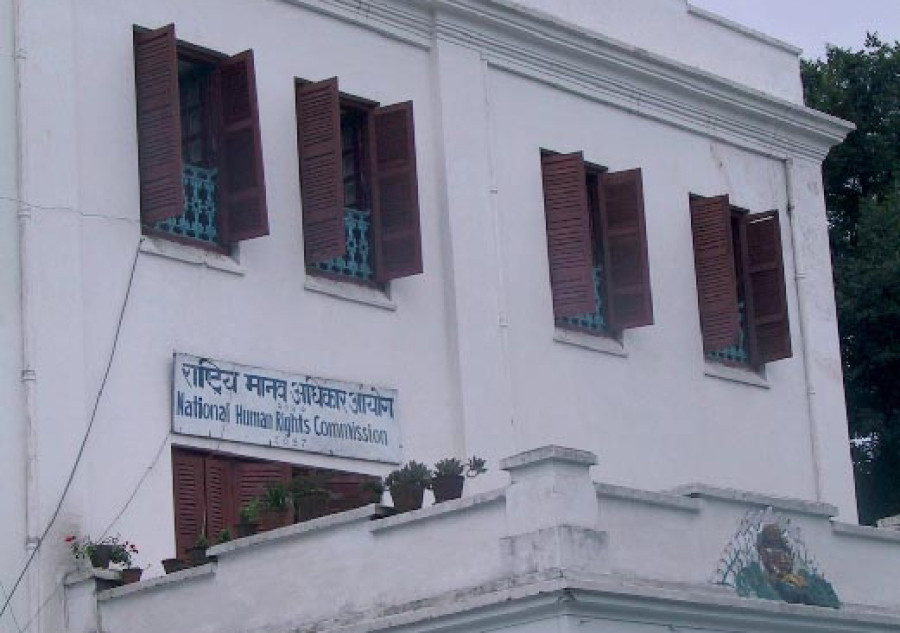National
As the government pushes ahead with IT Bill, rights watchdog expresses concern
The bill in its current form infringes on the fundamental freedom of expression, says the National Human Rights Commission.
Binod Ghimire
The National Human Rights Commission has expressed concern over the decision of a parliamentary committee to approve the Information Technology Bill on the grounds that the legislation could curtail the freedom of expression and allow state agencies to surveil personal data.
The controversial bill was registered in the federal parliament in February last year but was not moved ahead following widespread criticism. It was pending at the parliamentary Development and Information Committee for over six months as parties were unable to reach an agreement on the bill. However, on Sunday, the committee approved the bill with a majority vote, which now will be presented to the House for endorsement.
In a statement on Wednesday, the constitutional rights commission reminded the government about Article 19 of the Universal Declarations of Human Rights, which says everyone has the right to freedom of opinion and expression through any media.
“It [freedom of expression] is also a fundamental right enshrined in the constitution,” Bed Bhattarai, secretary at the commission, stated. “Placing a barrier to enjoying fundamental rights under any pretext is against the spirit of human rights.”
The commission has asked the government to hold proper consultations with concerned parties before formulating any laws that could have a direct impact on the people.
The Information Technology Bill proposes a hefty fine up to Rs 1.5 million, along with a jail term of a maximum of five years, for digital content that harasses, bullies or defames others. The bill even authorises government entities to block social media platforms if they are not registered in Nepal.
Authorising all three tiers of governments to direct Internet Service Providers to withdraw “improper” online content, without requiring permissions from the court, is against individuals’ freedom of speech, say human rights activists.
“The IT bill shouldn’t be endorsed in its present form. It must be revised before the full House endorses it,” Charan Prasain, a human rights activist, told the Post. “The government must refrain from presenting laws that are targetted at curtailing the rights of individuals.”
The primary opposition Nepali Congress has also opposed the bill and demanded that the government revise its “regressive” provisions. Issuing a statement on Wednesday, party chief whip Bal Krishna Khand said that various clauses in the bill constrain the fundamental freedom of expression.
“We urge all the concerned parties to stand against the bill as it will have dire long-term consequences,” Khand said in the statement.
The Congress party, along with activists, has pointed to a number of laws drafted by the KP Sharma Oli administration that are targeted at curtailing fundamental rights. Despite criticism from various quarters, the government last year came up with the Media Council Bill, which authorises the eponymous media council to slap hefty fines on the press. The bill gives the government a free hand in hiring and firing council members and also proposes sweeping powers for the self-regulatory body.
The government on Monday registered a Special Service Bill, which authorises the country’s intelligence agencies to intercept telephonic and digital conversations between individuals. This legislation too has been widely decried for invading the right to privacy of citizens.




 18.12°C Kathmandu
18.12°C Kathmandu














